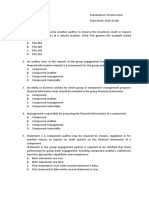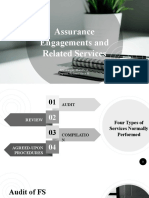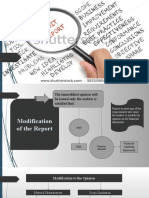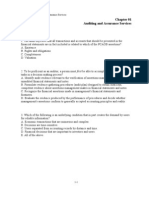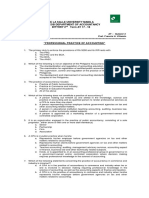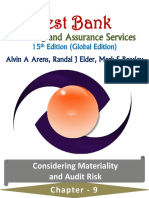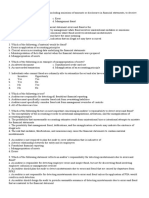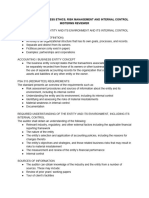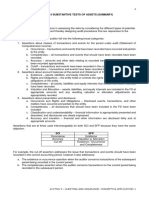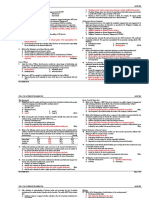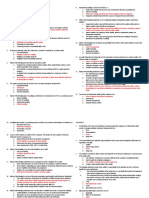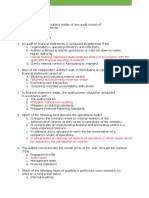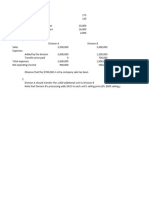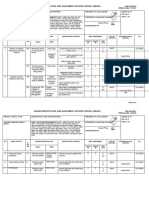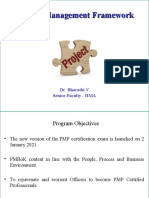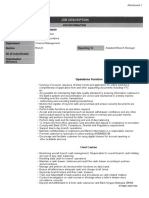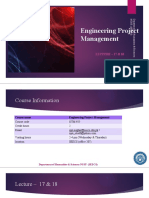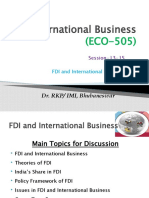0% found this document useful (0 votes)
122 views5 pagesIntro Quiz With Answer
The document is a quiz for the School of Business and Accountancy for the A.Y. 2024-2025 mid-year semester, focusing on operations auditing. It contains multiple-choice questions covering various aspects of auditing, including the purpose of audits, auditor responsibilities, internal auditing, and operational audits. The quiz is designed to assess students' understanding of auditing principles and practices.
Uploaded by
caliloonie39Copyright
© © All Rights Reserved
We take content rights seriously. If you suspect this is your content, claim it here.
Available Formats
Download as PDF, TXT or read online on Scribd
0% found this document useful (0 votes)
122 views5 pagesIntro Quiz With Answer
The document is a quiz for the School of Business and Accountancy for the A.Y. 2024-2025 mid-year semester, focusing on operations auditing. It contains multiple-choice questions covering various aspects of auditing, including the purpose of audits, auditor responsibilities, internal auditing, and operational audits. The quiz is designed to assess students' understanding of auditing principles and practices.
Uploaded by
caliloonie39Copyright
© © All Rights Reserved
We take content rights seriously. If you suspect this is your content, claim it here.
Available Formats
Download as PDF, TXT or read online on Scribd
/ 5





